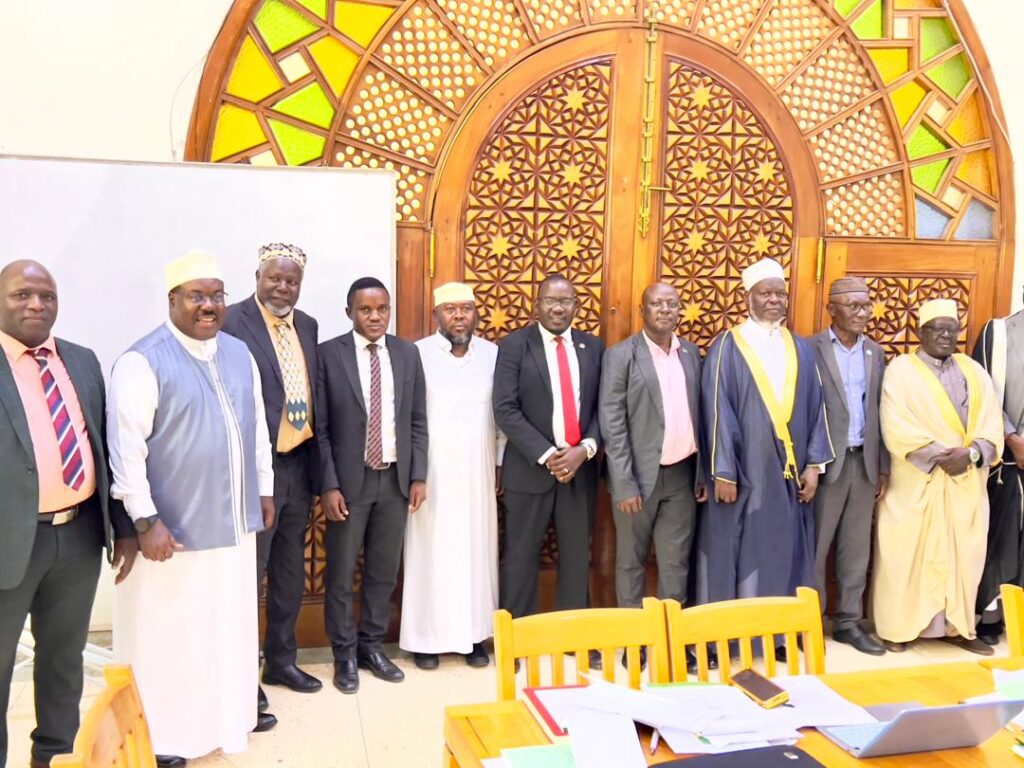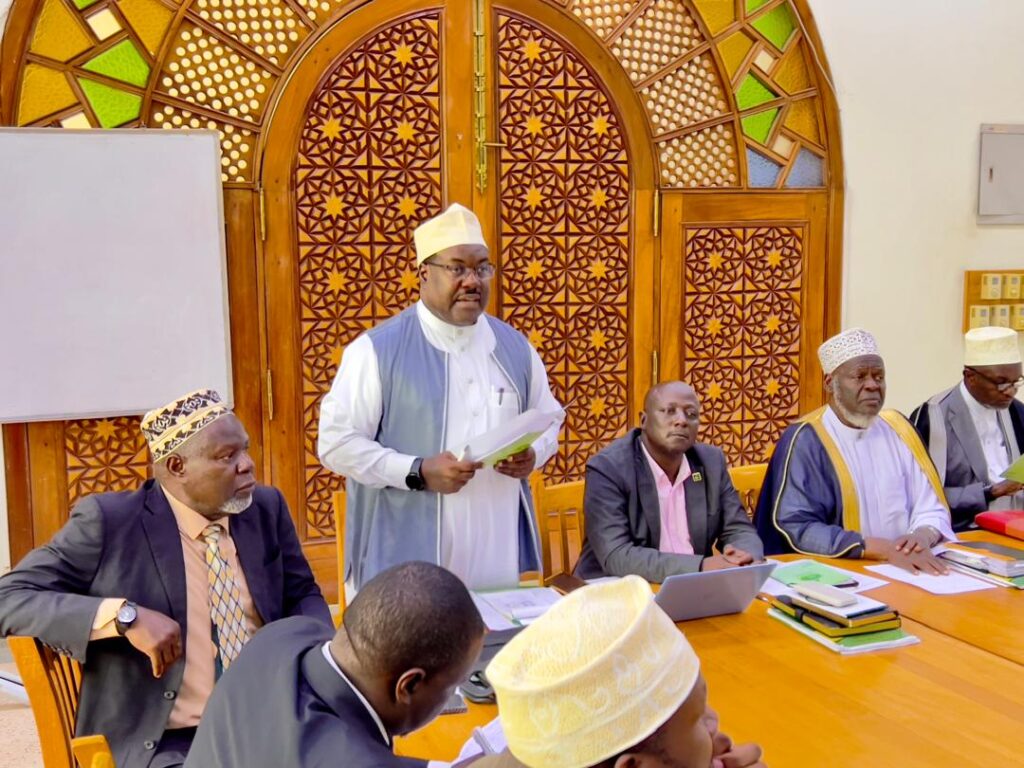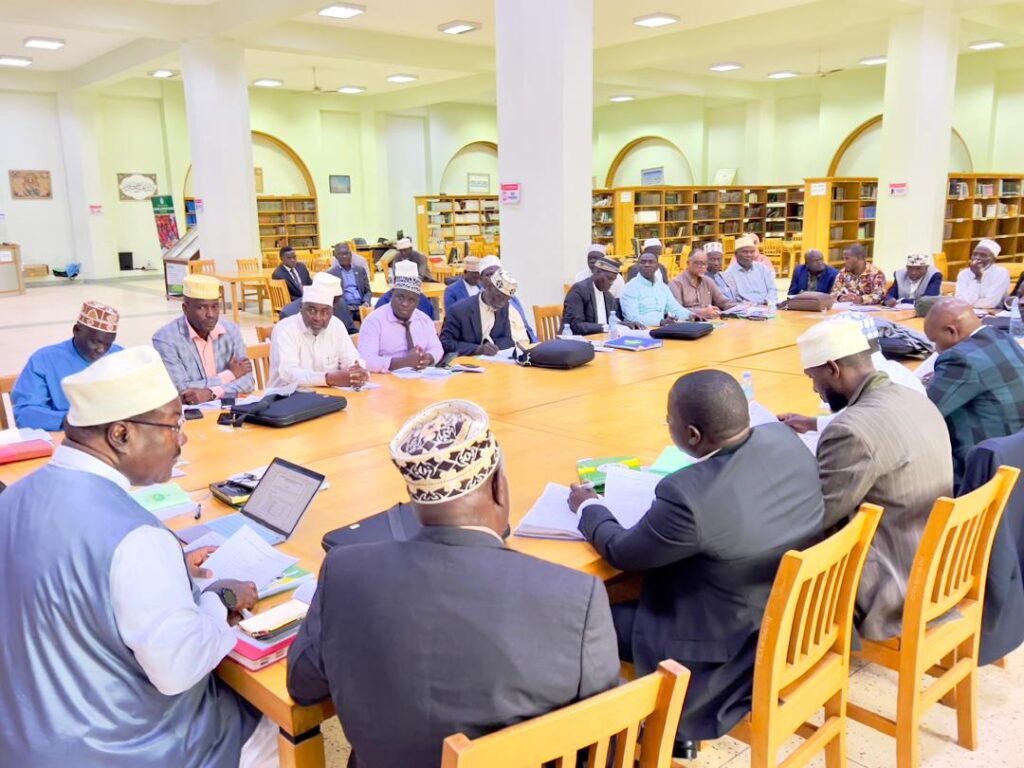
KAMPALA. The Uganda Muslim Supreme Council (UMSC) Joint Session has approved the creation of 17 new Muslim districts across the country to strengthen administration and service delivery within the Muslim community.
The resolutions — passed on Thursday, October 16, 2025— stipulate phased implementation and a one-year probationary performance evaluation; districts that fail to meet set standards will lose their status.
Key decisions and issues
Creation of 17 new Muslim districts, to be implemented in phases and monitored through a one-year probationary performance review.
Unveiling of the Muslim Arbitration and Reconciliation Council (MAC) members, who will handle arbitration and reconciliation matters as provided for in the UMSC constitution.
Presentation of the NEC’s mid-year performance review and forward-looking strategy by the Secretary General, and a Majlis Al Ulama endorsement of OIC recommendations to annually commemorate the birth of Prophet Muhammad (peace be upon him) as part of preserving Islamic heritage.

New Muslim districts by category
Category One – West Nile Region (high Muslim population):
Obongi Muslim District (carved out of Moyo); Terego and Madi-Okolo Muslim Districts (from the old Arua Muslim District); Zombo Muslim District (from Nebbi).
Category One (b) – To be operationalized after stakeholder consultations:
Bombo Muslim District (from Luwero); Midigo and Dacha Muslim Districts (from Yumbe); Maracha Muslim District (from Arua).
Category Two – Awaiting stakeholder engagements:
Agago/Pader (from Acholi); Kidepo (from Kotido); Serere (from Teso); Butebo (from Pallisa); Kikuube (from Bunyoro).
Category Three – Requests from regional
representatives:
Kityerera (from Mayuge); Nankoma (from Namayingo); Kaberamaido (from Teso); Amolatar/Dokolo and Otuke/Alebtong (from Lango); Kyotera (from Rakai, West Buganda).

Secretary General’s presentation
During the National Executive Committee (NEC) meeting, Haji Abbas Muluubya Ssekyanzi, the Secretary General, presented a 19-page comprehensive report that highlighted the UMSC Activity Calendar, a mid-year performance review, and a forward-looking strategy for the Council.
The report’s recommendations formed part of the submissions taken up by the Joint Session.
Majlis Al Ulama deliberations
The Majlis Al Ulama, chaired by His Eminence Sheikh Shaban Ramadhan Mubajje (Mufti of Uganda), received communication from the Mufti and a progressive report from the Department of Religious Affairs. A notable item was a concept paper on a recent Organization of Islamic Cooperation (OIC) resolution urging member states to hold annual commemorations of the Prophet’s birth to preserve Islamic heritage. The Majlis scholars unanimously endorsed the recommendations.
Joint Session constitution and approvals
Members from both committees later constituted the Joint Session chaired by Prof. Dr. Muhammadi Lubega Kisambira. Several recommendations from both committees were read and approved, including the district creations noted above and the formal unveiling of MAC members.
Muslim Arbitration & Reconciliation Council (MAC) — unveiled
The MAC members appointed last year were officially presented to the public, marking the Council’s readiness to handle disputes and reconciliation as provided for in the UMSC constitution.
MAC membership:
Chairman: Dr. Adam Rajab Makmot Kibwanga— LL.B (Makerere), PGD (LDC), M.A. (Uganda Christian University), PGD Management (Gulu University), M.A. Peace & Conflict Resolution (University of Innsbruck, Austria), PhD in Law (Bradford University, UK); Senior Lecturer/Deputy Head of Subject (LDC); Advocate; former Human Rights Officer (UHRC).
Counsel Bunyasin Ibrahim — Secretary/Registrar.
Sheikh Abubakar Musoke, Sheikh Shafie Songolo, Sheikh Kassim Kamugisha, and Elder Counsel Zinsaze Ismail (retired Chief Magistrate).
Other appointments and attendees
Sheikh Eden Tabu Uthuman was sworn in as the new representative of the Northern Muslim Region on the Majlis Al Ulama. He holds a B.A. in Islamic Studies (IUIU), an M.A. in Public Administration & Management (Gulu University), and is a final-year Sharia student at the Islamic Call University.
The session was attended by His Eminence Sheikh Muhammad Ali Waiswa (Deputy Mufti); Hon. Counsel Haji Muhammad Ali Aluma (Deputy Secretary General in charge of Finance & Administration); Hon. Abdu-Razaq Arinda (Deputy Secretary in charge of Planning & Development); and Haji Juma Ali Ngobi (Secretary for Finance & Planning).